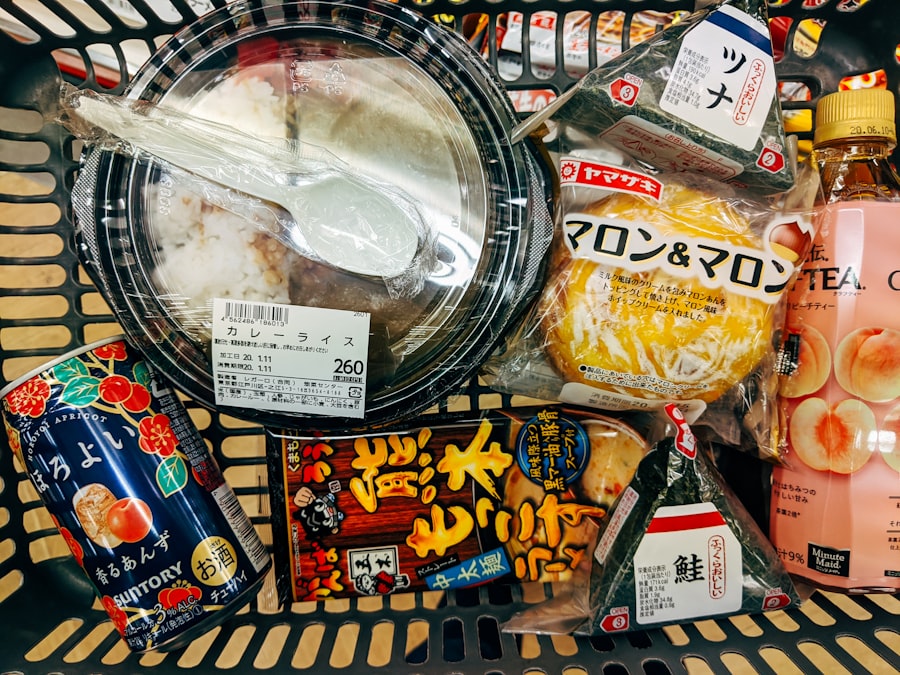When it comes to saving money on groceries, one of the most effective strategies you can adopt is meal planning. By taking the time to plan your meals for the week ahead, you can create a focused shopping list that minimizes waste and maximizes your budget. Start by assessing what ingredients you already have in your pantry and refrigerator.
This will help you avoid buying items you don’t need and allow you to use up what you already have. Consider incorporating versatile ingredients that can be used in multiple dishes throughout the week, which not only saves money but also reduces food waste. Meal planning also allows you to take advantage of seasonal produce and sales.
By aligning your meals with what’s on sale or in season, you can significantly cut down on costs. For instance, if you notice that tomatoes are particularly cheap this week, you might plan a few meals that feature them prominently. Additionally, having a meal plan can help you resist the temptation of last-minute takeout or dining out, which often comes with a hefty price tag.
By knowing exactly what you’ll be eating each day, you can save both time and money while enjoying home-cooked meals.
Key Takeaways
- Planning meals in advance helps save time and money
- Utilize coupons and loyalty programs to maximize savings
- Buying in bulk can lead to significant cost savings
- Shopping sales and discounts can help stretch your budget
- Avoid impulse purchases to stay within your grocery budget
Use coupons and loyalty programs
In today’s digital age, using coupons and loyalty programs has never been easier. Many grocery stores offer apps that allow you to access digital coupons right from your smartphone. Before heading out to shop, take a few minutes to browse through these apps and clip any relevant coupons that can be applied to your purchases.
You might be surprised at how much you can save just by taking advantage of these offers. Additionally, many stores have loyalty programs that reward frequent shoppers with discounts, points, or exclusive deals. Signing up for these programs is usually free and can lead to significant savings over time.
Moreover, combining coupons with sales can amplify your savings even further. For example, if a particular item is on sale and you have a coupon for it, you can stack those discounts for maximum benefit. It’s also worth noting that some stores allow you to use competitor coupons, which can open up even more opportunities for savings.
By being proactive about using coupons and participating in loyalty programs, you can stretch your grocery budget much further than you might have thought possible.
Buy in bulk

Buying in bulk is another savvy strategy that can lead to substantial savings on your grocery bill. When you purchase items in larger quantities, the per-unit cost often decreases significantly. This is particularly true for non-perishable items such as grains, canned goods, and cleaning supplies.
Before making a bulk purchase, however, it’s essential to consider whether you have enough storage space and whether you will realistically use the items before they expire. If you have a large family or frequently entertain guests, buying in bulk can be especially beneficial. Additionally, consider joining a warehouse club where bulk purchasing is the norm.
These clubs often offer great deals on a wide variety of products, from groceries to household items. While there may be an annual membership fee, the savings on bulk purchases can quickly offset this cost. Just remember to keep an eye on expiration dates and only buy what you know you will use.
By strategically purchasing in bulk, you can save money while ensuring that your pantry is well-stocked.
Shop sales and discounts
| Month | Sales | Discounts |
|---|---|---|
| January | 1500 | 200 |
| February | 1800 | 250 |
| March | 2000 | 300 |
One of the simplest yet most effective ways to save money on groceries is to shop sales and discounts regularly. Most grocery stores have weekly flyers or online listings that showcase their current promotions. By taking the time to review these sales before heading out to shop, you can plan your meals around discounted items.
This not only helps you save money but also encourages variety in your diet as you explore new recipes based on what’s on sale. In addition to weekly sales, many stores also have clearance sections where you can find items that are nearing their expiration date but are still perfectly good to consume. These items are often marked down significantly, allowing you to stock up on essentials at a fraction of the cost.
Just be sure to check the expiration dates and plan to use these items soon after purchase. By being mindful of sales and discounts, you can make your grocery budget stretch further while enjoying a diverse array of foods.
Avoid impulse purchases
Impulse purchases can quickly derail even the most carefully planned grocery budget.
To combat this tendency, it’s crucial to stay focused on your shopping list and stick to it as closely as possible.
Before entering the store, remind yourself of your budget and the specific items you need. This mental preparation can help reinforce your commitment to avoiding unnecessary purchases. Another effective strategy is to shop when you’re not hungry.
Shopping on an empty stomach can lead to cravings and spur-of-the-moment decisions that result in buying items you don’t need. If possible, try to schedule your grocery trips after a meal or snack so that you’re less likely to be swayed by tempting treats. By being mindful of impulse purchases and staying committed to your list, you’ll find it easier to stick to your budget and make more intentional choices.
Stick to a grocery list

Creating and adhering to a grocery list is one of the most effective ways to manage your spending at the supermarket. A well-thought-out list helps ensure that you only buy what you need, reducing the likelihood of overspending or making impulse purchases. Before heading out, take some time to plan your meals for the week and jot down all necessary ingredients.
This not only keeps your shopping focused but also helps prevent food waste by ensuring that you’re buying items you’ll actually use. When you’re at the store, try to stick closely to your list and resist the temptation to deviate from it unless there’s a significant sale on an item you regularly use. If you find yourself tempted by an item not on your list, ask yourself if it’s something you truly need or if it’s just an impulse buy.
By maintaining discipline and sticking to your grocery list, you’ll find it much easier to stay within your budget while still enjoying a variety of meals throughout the week.
Buy generic brands
When shopping for groceries, consider opting for generic or store-brand products instead of name-brand items. Often, these generic brands offer similar quality at a fraction of the price. Many consumers are surprised to discover that generic products are often manufactured by the same companies that produce their name-brand counterparts but are sold under a different label at a lower cost.
By making this switch, you can enjoy significant savings without sacrificing quality. Additionally, many grocery stores have expanded their generic offerings in recent years, providing a wider range of options across various categories—from pantry staples like rice and pasta to snacks and frozen foods. Take some time to experiment with different generic brands; you may find that they meet or even exceed your expectations compared to their name-brand alternatives.
By incorporating more generic products into your shopping routine, you’ll be able to cut costs while still enjoying high-quality food.
Cook at home instead of dining out
One of the most impactful changes you can make for both your health and your wallet is cooking at home instead of dining out. Restaurant meals often come with hefty price tags due to labor costs and overhead expenses, making them significantly more expensive than preparing food at home. By cooking for yourself, not only do you save money, but you also have complete control over ingredients and portion sizes, allowing for healthier meal choices.
To make cooking at home more manageable, consider setting aside specific days for meal prep or batch cooking. Preparing larger quantities of food at once means you’ll have ready-to-eat meals available throughout the week, reducing the temptation to order takeout when you’re short on time or energy. Additionally, exploring new recipes can make cooking at home an enjoyable experience rather than a chore.
With practice and creativity, you’ll find that home-cooked meals can be both delicious and budget-friendly.
Avoid pre-packaged and processed foods
While pre-packaged and processed foods may seem convenient, they often come with hidden costs—both financially and nutritionally. These items tend to be more expensive than their whole-food counterparts and are frequently loaded with preservatives, sodium, and unhealthy fats. By focusing on whole foods—such as fresh fruits, vegetables, grains, and lean proteins—you not only save money but also improve your overall health.
Shopping for whole foods may require some extra effort in terms of preparation and cooking time; however, the benefits far outweigh these minor inconveniences. You’ll likely find that whole foods are more satisfying and nutritious than processed options, leading to better overall health outcomes in the long run. Additionally, experimenting with whole ingredients allows for greater creativity in the kitchen as you discover new flavors and cooking techniques.
Grow your own fruits and vegetables
If you’re looking for a rewarding way to save money on groceries while enjoying fresh produce, consider starting a small garden at home. Growing your own fruits and vegetables can significantly reduce your grocery bill while providing delicious ingredients right from your backyard or balcony. Even if space is limited, container gardening allows for growing herbs or small vegetables in pots—making it accessible for anyone interested in cultivating their own food.
Not only does gardening save money, but it also offers numerous health benefits as well as a sense of accomplishment. Tending to plants can be therapeutic and provides an opportunity for physical activity outdoors. Plus, there’s nothing quite like the taste of freshly picked produce!
As you become more experienced in gardening, you’ll likely find yourself experimenting with different varieties and learning about sustainable practices that further enhance your self-sufficiency.
Use cashback and rebate apps
Incorporating cashback and rebate apps into your shopping routine is an excellent way to maximize savings on groceries without much extra effort. These apps allow you to earn money back on purchases simply by scanning receipts or linking your store loyalty accounts. Popular apps like Ibotta or Rakuten offer various cashback opportunities on everyday grocery items as well as special promotions that can lead to significant savings over time.
To get started with cashback apps, download one or more onto your smartphone and create an account. Before shopping, browse through available offers related to items on your grocery list; this way, you’ll know which products will earn you cashback rewards when purchased. After shopping, simply upload your receipt through the app for verification—it’s as easy as that!
By consistently using cashback apps alongside other budgeting strategies discussed here, you’ll find yourself saving even more on groceries while enjoying all the benefits of smart shopping practices.
If you’re looking to save money on your grocery bill, you might find the article “Secrets to Lower Your Grocery Bill” particularly insightful. For additional tips on managing your finances and growing your wealth, you can explore related content on the same website. One such resource is available at How Wealth Grows, where you can find a variety of articles and advice on financial management and wealth-building strategies.
WATCH NOW! How Algorithms Quietly Bloat Your Grocery Bill; Here’s How to Fight Back
FAQs
What are some general tips for lowering your grocery bill?
Some general tips for lowering your grocery bill include meal planning, using coupons, buying in bulk, and shopping for seasonal produce.
How can meal planning help lower your grocery bill?
Meal planning can help lower your grocery bill by reducing food waste, allowing you to buy only what you need, and helping you avoid last-minute, more expensive, convenience purchases.
What are some ways to use coupons to save money on groceries?
You can use coupons to save money on groceries by clipping them from newspapers or magazines, downloading them from online coupon websites, and using them in conjunction with store sales and promotions.
How can buying in bulk help lower your grocery bill?
Buying in bulk can help lower your grocery bill by reducing the cost per unit of the items you purchase, especially for non-perishable items like rice, pasta, and canned goods.
Why is shopping for seasonal produce a good way to save money on groceries?
Shopping for seasonal produce can save you money on groceries because it is often more abundant and therefore less expensive when it is in season.
